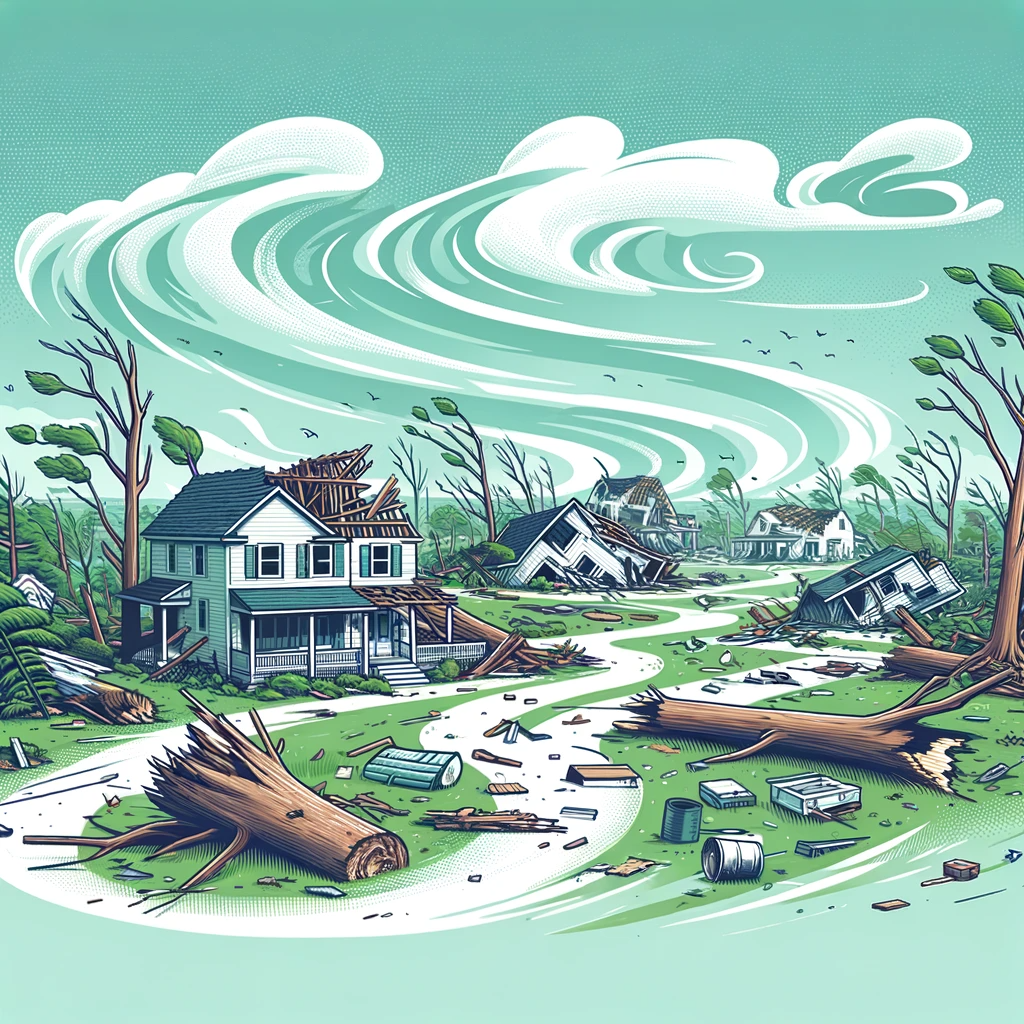Damage
Definition
Damage refers to harm or injury that reduces the value, usefulness, or normal function of something. It can also describe the financial cost associated with the harm caused or, as a verb, the act of inflicting harm on an object, person, or entity.
Parts of Speech
- Noun
- Verb
Pronunciation
American English
- IPA Pronunciation: /ˈdæm.ɪdʒ/
- Respelling: DAM-ij
British English
- IPA Pronunciation: /ˈdæm.ɪdʒ/
- Respelling: DAM-ij
Etymology
The word "damage" originates from the Latin "damnum," meaning "loss" or "harm," which evolved through Old French as "damager," meaning "to cause harm." The term came into Middle English as "damage" to signify both the harm caused and the cost of repair.
Derivatives
- Damaging (adjective)
- Damager (noun)
- Undamaged (adjective)
- Damageable (adjective)
- Redamage (verb)
Synonyms
- Harm
- Injury
- Destruction
Antonyms
- Repair
- Healing
- Improvement
Usage
The term "damage" is widely used to describe physical or metaphorical harm inflicted on an object, entity, or person. For example, "The storm caused severe damage to the buildings." It is also used as a verb, such as "Please be careful not to damage the equipment."
Related Terms
- Destruction: The act of causing something to no longer exist or function.
- Breakage: The process or act of breaking something.
- Degradation: The act or process of reducing in quality or functionality.
Detailed Definitions
Noun
- Harm or injury that reduces value or function: Refers to the adverse effect on the condition or performance of an object or entity.
- Example: "The flood caused extensive damage to the crops."
- The financial cost associated with harm or injury: Describes the compensation or expenditure required to repair or rectify harm done.
- Example: "The insurance covered the damage expenses."
Verb
- To cause harm or injury to something: Indicates the action of inflicting a detrimental effect on an item or entity.
- Example: "The harsh chemicals can damage the fabric."
- To reduce the value or functionality of something: Refers to actions that impair the worth or usefulness of an object or concept.
- Example: "Sunlight can damage artwork over time."
damage



🇨🇳 Mandarin (Simplified Chinese)
- 损害 (harm, impairment)
- IPA: /su̯ən˥˩ xai̯˥˩/
- Respelling: sǔnhài
- 损坏 (physical damage, breakage)
- IPA: /su̯ən˥˩ xuai˥˩/
- Respelling: sǔnhuài
🇮🇳 Hindi
- क्षति (harm, injury)
- IPA: /kʃə.t̪i/
- Respelling: kshati
- नुकसान (loss, detriment)
- IPA: /nʊˈkːaːn/
- Respelling: nukkān
🇪🇸 Spanish
- daño (harm, injury)
- IPA: /ˈdaɲo/
- Respelling: daño
- perjuicio (detriment, harm)
- IPA: /perˈxwi.sjo/
- Respelling: per-huicio
🇫🇷 French
- dommage (harm, injury)
- IPA: /dɔ.maʒ/
- Respelling: do-maj
- préjudice (detriment, harm)
- IPA: /pʁe.ʒy.dis/
- Respelling: pré-jy-dis
🇸🇦 Modern Standard Arabic
- ضرر (harm, injury)
- IPA: /ðarː/
- Respelling: dharar
- أذى (hurt, harm)
- IPA: /ʔaðːaː/
- Respelling: adhā
🇧🇩 Bengali
- ক্ষতি (harm, injury)
- IPA: /kʰɔti/
- Respelling: khoti
- অবসান (loss, decline)
- IPA: /obosan/
- Respelling: obosan
🇷🇺 Russian
- повреждение (injury, harm)
- IPA: /pɐvˈrʲeʐdʲɪnʲɪje/
- Respelling: povrezhdeniye
- убыток (loss, damage)
- IPA: /ʊˈbɨtək/
- Respelling: ubytok
🇵🇹 Portuguese
- dano (harm, injury)
- IPA: /ˈdanu/
- Respelling: dano
- prejuízo (loss, detriment)
- IPA: /pɾeʒuˈizu/
- Respelling: prej-uízo
🇮🇩 Indonesian
- kerusakan (damage, destruction)
- IPA: /kərusakan/
- Respelling: kerusakan
- kerugian (loss, detriment)
- IPA: /kərugian/
- Respelling: kerugian
🇩🇪 German
- Schaden (harm, damage)
- IPA: /ˈʃaːdn̩/
- Respelling: shaaden
- Verlust (loss)
- IPA: /fɛʁˈlʊst/
- Respelling: fer-lust
🇯🇵 Japanese
- 損傷 (damage, injury)
- IPA: /soɴ.ʃoʊ/
- Respelling: sonshō
- 損失 (loss)
- IPA: /soɴ.ʃit͡su/
- Respelling: sonshitsu
🇻🇳 Vietnamese
- hỏng (broken, damaged)
- IPA: /hawŋm˧˧/
- Respelling: hỏng
- thiệt hại (loss, damage)
- IPA: /tʰiət̚˧˧ haːj˧˧/
- Respelling: thiệt hại
🇰🇷 Korean
- 피해 (damage, harm)
- IPA: /pʰi.hε/
- Respelling: pi-hae
- 손실 (loss, deficit)
- IPA: /son.ʃil/
- Respelling: son-shil
🇹🇷 Turkish
- zarar (harm, loss)
- IPA: /zɑːˈɾɑɾ/
- Respelling: zaarar
- hasar (damage, injury)
- IPA: /hɑˈsaɾ/
- Respelling: ha-saar
🇵🇰 Urdu
- نقصان (loss, detriment)
- IPA: /nuːkːsaːn/
- Respelling: nuqsaan
- چوٹ (injury, harm)
- IPA: /tʃʰoʊʈ/
- Respelling: chot





